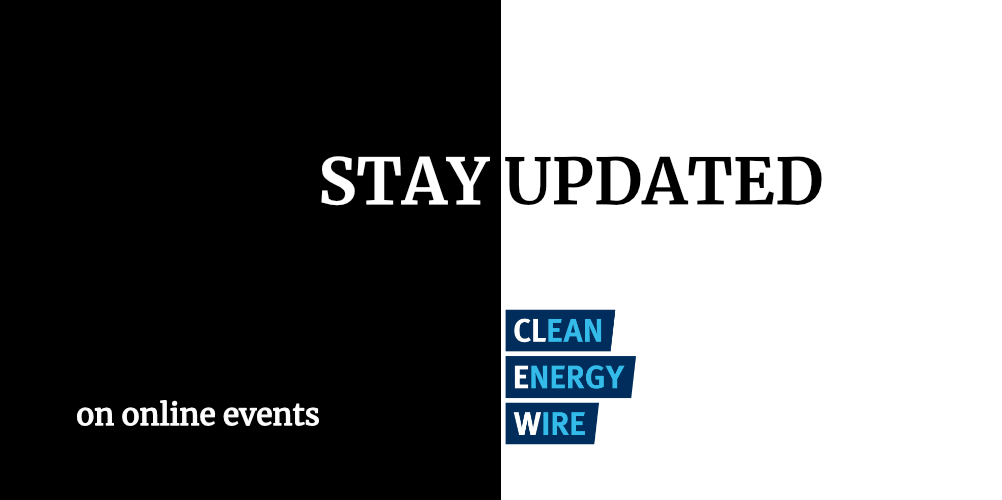
Milou Dirkx is Lead Network & Media Programmes at Clean Energy Wire.
Stay updated on online journalism and energy events
LAST UPDATE 11/02
[Updated with webinars from FSR, IRENA, WRI]
| 18/02, 16.00 CET | Webinar - Tracking Systems Change for People and Planet Organiser: World Resources Institute (WRI) Tackling climate change, biodiversity loss and global inequities requires rapid, coordinated transformations across the interconnected systems that shape our world — from the ways we power economies, transport goods and design our cities to how we produce food, govern societies and protect nature. Tracking progress across these systems is essential to driving meaningful action. On February 18 at 10 AM EST (4 PM CET), join Systems Change Lab for an interactive training and deep dive into our open-source data platform. You can find more information and register via this link. |
| 24/02, 14.00 CET | Webinar - Innovation Landscape for Sustainable Development Powered by Renewables Organiser: International Renewable Energy Agency (IRENA) The global energy transition presents considerable opportunities to transform and modernise energy systems across the globe. All regions have much to gain from this transition, making it possible to create resilient and affordable low-carbon energy systems and provide universal access to electricity. The development of renewables can be a catalyst for ensuring a equitable transition for all, as well as sustainable development, in particular in emerging markets and developing economies (EMDEs). IRENA's innovation flagship report maps the innovation landscape for sustainable development powered by renewables in a systemic way and identifies 40 innovations that policymakers can strategically combine to build solutions for two urgent goals: building resilient power systems and expanding energy access while driving inclusive local development. You can find more information here and register via this link. |
| 25/02,14.30CET | Webinar - Unlocking Europe’s geothermal potential Organiser: Florence School of Regulation (FSR) This online debate centres on the launch of GeoMap Europe, a new continent-wide geothermal mapping platform developed by Project InnerSpace, which integrates millions of subsurface data points into an open, accessible visualisation of Europe’s geothermal resources. The discussion will examine how GeoMap Europe can help overcome information and risk barriers, support the implementation of EU climate and energy legislation, and accelerate geothermal deployment in line with the European Green Deal and revised Renewable Energy Directive. Speakers will reflect on policy, regulatory, and market implications, including permitting acceleration, heat planning, and the role of geothermal in strengthening Europe’s energy independence. You can find more information here and register via this link. |

